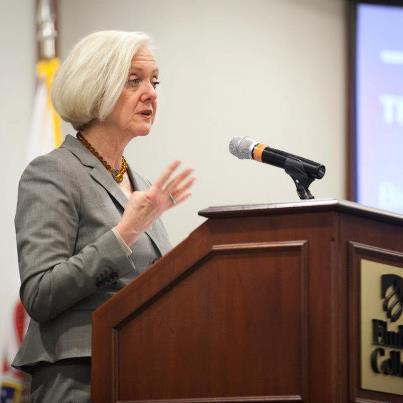Every time I read a new article on the Synod of Bishops meeting on the family, I have to remind myself why I care about the church’s teaching. So much of the reporting focuses on “issues” and “sides.” It is as if that only thing that matters is where one stands or what one opposes. I feel like it is more coverage of a sporting event than dealing with joys and hopes, the griefs and anxieties of married life.
What do I find nourishing about the church’s teaching? In a series of six posts, I focus on how marriages can foster the goods of: economic life, the church, civic society, fidelity, unity, and procreation. I am attempting not to reduce it to one issue or present it in a polemical manner but to present the church’s teaching in its depth and richness and indicate how it fosters genuine love.
An Essential Agent of Economic Life
The church’s teaching on how families affect economic issues is succinctly summed up by section 248 in the Compendium of the Social Doctrine of the Church:
The family, therefore, must rightfully be seen as an essential agent of economic life, guided not by the market mentality but by the logic of sharing and solidarity among generations.
According to the church, families should not to be guided by a “market mentality.” This is not opposition to particular policies or systems per se. Rather, it is against a world-view that understands and values everything in primarily economic terms. This dynamic is partly what Pope Francis opposes in Evangelii Gaudium, 53, saying that:
Today everything comes under the laws of competition and the survival of the fittest, where the powerful feed upon the powerless. As a consequence, masses of people find themselves excluded and marginalized: without work, without possibilities, without any means of escape.
The result, Pope Francis continues, is that, once people are excluded or marginalized, they are no longer seen or cared for. They become, like so many of the goods that are purchased, valued only by what they add to our lives and thrown away when their value is depleted. While there is more that feeds into this market mentality, the main point is that it can come to dominate one’s way of viewing and living in the world.
This dehumanizing worldview so often slips into our lives. I see it all the time in college students who worry about which major they will have by valuing it in terms of money or prestige. I see it in childhood sports when parents push kids in first and second grade to practice several times a week and focus on one particular sport to play year round. I see it in my own life when I have to remind myself not to feel threatened by my colleagues who excel at teaching and publishing.
According to the Compendium, marriage works against this dog-eat-dog world through “the logic of sharing and solidarity.” Section 249 of the Compendium indicates three ways that families reorder economic thinking.
The contribution that the family can make to the reality of work is valuable and, in many instances, irreplaceable. It is a contribution that can be expressed both in economic terms and through the great resources of solidarity that the family possesses and that are often an important support for those within the family who are without work or who are seeking employment. Above all and more fundamentally, it is a contribution that is made by educating to the meaning of work and by offering direction and support for the professional choices made.
First, families support those “who are without work or who are seeking employment.” Families tend to value people, regardless of their productivity. They care for infants who can barely hold their heads up, children with physical or mental disabilities, sick spouses, and elderly parents. They tend to order their resources to care for those in the family. They do not “throw away” these individuals even though they do not generate revenue for the household. The solidarity of the family means that resources are shared. The young, sick and old—those typically poor in our society—are valued.
Second, families educate “to the meaning of work.” According to the Compendium, work serves several purposes: promotes “conditions for a decent life” (257), participates “not only in the act of creation but also in that of redemption,” (263) and cooperates with and serves others (273). Very early, kids can grasp that the work done by parents pays for the food and the house, clothes and the bills. Beyond this, children are given chores—from picking up clothes, to setting the table, to feeding the dog—that teach both cooperation and how to manage the household, and so provide an example of how work can be with and for others. In addition, as Julie Hanlon Rubio indicated in her essay on the dual-vocation of parents, parents instruct kids by the work they do. Parents have obligations to the world that go beyond the home. Often this work is the parent’s profession, but it can also be the way parents reach out to help neighbors, volunteer for school functions, or coach pee-wee sports. Whatever form it takes, parents’ work teaches children that they can and should contribute to the creation and redemption of the world.
Finally, families offer “direction and support for the professional choices made.” Parents can help children reflect on what they enjoy and what they are good at. Parents can also draw upon their experiences to provide ways to respond to challenges at work or in professional life. They can remind children what is important in life, just as children can remind parents not to idolize work. Perhaps grandparents can provide guidance to both. In short, the value placed on the family is what guides people to make decisions to serve more than just one’s own professional interests.
This seems to be the heart of how the family is “an essential agent of economic life.” In being a community of love, the family is called to be a place where people and their good are valued and where resources are directed toward these ends. This “school” forms individuals so that, when they work, they are not guided by a dog-eat-dog world perspective but are truly guided by “the logic of sharing and solidarity.”
This post is part of a series of six focusing on the Catholic church’s teaching on marriage and how it fosters the goods of: economic life, the church, civic society, fidelity, unity, and procreation.





Trackbacks/Pingbacks